 Petzlover
Petzlover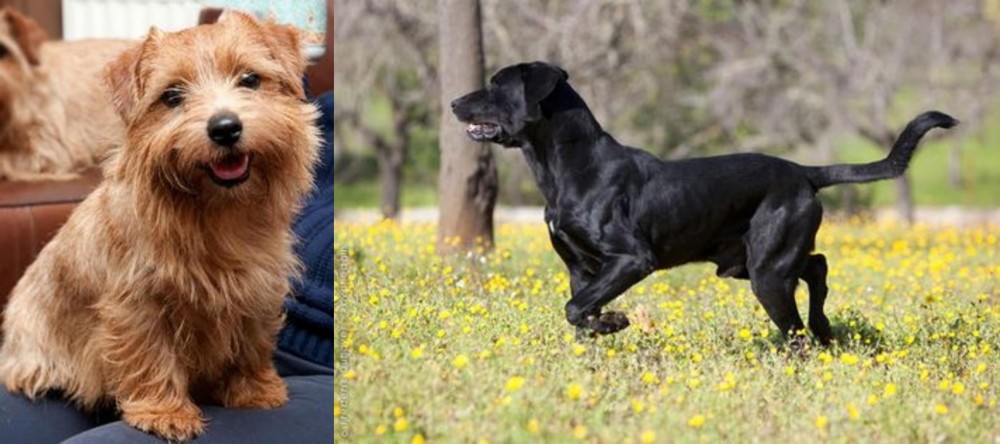 Norfolk Terrier is originated from United Kingdom but Perro de Pastor Mallorquin is originated from Spain. Norfolk Terrier may grow 47 cm / 18 inches shorter than Perro de Pastor Mallorquin. Norfolk Terrier may weigh 34 kg / 74 pounds lesser than Perro de Pastor Mallorquin. Both Norfolk Terrier and Perro de Pastor Mallorquin has almost same life span. Both Norfolk Terrier and Perro de Pastor Mallorquin has almost same litter size. Both Norfolk Terrier and Perro de Pastor Mallorquin requires Moderate Maintenance.
Norfolk Terrier is originated from United Kingdom but Perro de Pastor Mallorquin is originated from Spain. Norfolk Terrier may grow 47 cm / 18 inches shorter than Perro de Pastor Mallorquin. Norfolk Terrier may weigh 34 kg / 74 pounds lesser than Perro de Pastor Mallorquin. Both Norfolk Terrier and Perro de Pastor Mallorquin has almost same life span. Both Norfolk Terrier and Perro de Pastor Mallorquin has almost same litter size. Both Norfolk Terrier and Perro de Pastor Mallorquin requires Moderate Maintenance.
 It was in the 1880s that a working terrier was developed in eastern England. The Norfolk Terrier was developed by crossing local terrier-like dogs with the Irish Terrier breed as well as small red terriers.
It was in the 1880s that a working terrier was developed in eastern England. The Norfolk Terrier was developed by crossing local terrier-like dogs with the Irish Terrier breed as well as small red terriers.
Known first as the Cantab Terrier and then later as the Trumpington Terrier, the name changed further but in 1932, the Norwich was accepted into the English Kennel Club and the first written standard was created.
The Norfolk Terrier was recognized by the United Kennel Club in 1979. It has gained recognition as an independent breed but is a variety of the Norwich Terrier, distinguished from it by having floppy ears and not erect ears. Both the Norfolk- and Norwich are the smallest of the working terriers.
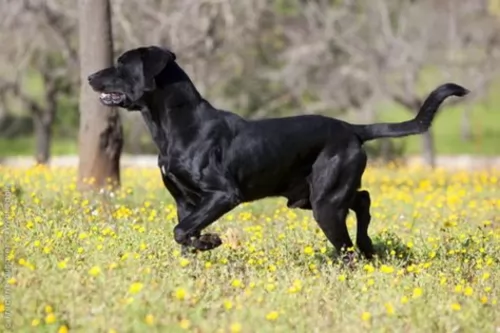 Known also as the Majorca Shepherd Dog or Ca de Bestiar, the very name Perro de Pastor Mallorquin means Shepherd dog of Mallorca.
Known also as the Majorca Shepherd Dog or Ca de Bestiar, the very name Perro de Pastor Mallorquin means Shepherd dog of Mallorca.
The dog hails from Spain and has been used as a general purpose farm dog. The diligent work of fans of the dog to encourage its development were rewarded when the dog - both short- and long haired varieties - gained recognition from the Fédération Cynologique Internationale.
The dog is really only popular in its homeland where it is appreciated for its guarding and herding abilities.
 The Norfolk Terrier is a small purebred dog, standing at 23 to 25cm in height and weighing roughly between 4.5kg and 6kg. The dog has a wire-haired coat which can be in different colors such as wheaten, red, black and grey or grizzle.
The Norfolk Terrier is a small purebred dog, standing at 23 to 25cm in height and weighing roughly between 4.5kg and 6kg. The dog has a wire-haired coat which can be in different colors such as wheaten, red, black and grey or grizzle.
The hair on his head and ears is shorter and smoother and he has longer whiskers and eyebrows. The chest is deep, the front legs are short and straight and the tail has always been docked to half its length but left long these days. The tail is set high and carried erect.
Norfolks are feisty, fearless dogs with an independent streak. They’re gentle though, and when it comes to being a companion dog, they get on well with children and other pets. They thrive on their human family’s companionship and wouldn’t do well at all if they were constantly left outside.
They’re not yappy dogs but will bark occasionally so he can sound the alarm if strangers approach.
This little dog is able to live in the city or the countryside, but just because he is little, you can’t neglect his exercise needs. He will most certainly need to be exercised every day and taken for walks as he is an energetic, lively dog. He is intelligent too and easy to train and socialize, turning him into such an obedient, pleasurable pet.
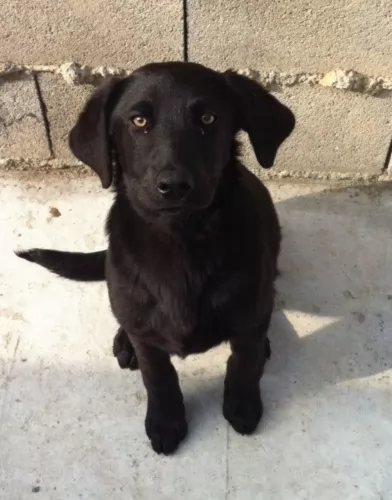 The Perro de Pastor Mallorquin is a large dog which stands between 62 and 73 cm and weighs between 35 and 40kg. Most of them are short haired, ensuring low grooming requirements for the owner. The coat is black, in fact the Fédération Cynologique Internationale says its the only color which is acceptable. He has floppy ears and the tail is long, rising when the dog is on the move.
The Perro de Pastor Mallorquin is a large dog which stands between 62 and 73 cm and weighs between 35 and 40kg. Most of them are short haired, ensuring low grooming requirements for the owner. The coat is black, in fact the Fédération Cynologique Internationale says its the only color which is acceptable. He has floppy ears and the tail is long, rising when the dog is on the move.
The Perro de Pastor Mellorquin is a dominant, independent and wilful dog that will need to be trained and socialized if he is to be obedient. He is fiercely devoted to his owner, being loving and protective. This training is actually important as the Majorca Shepherd Dog doesn't take easily to strangers and can in fact show signs of aggression when around them.
It is qualities like this that make him a good guardian and watchdog. With training and socialization he will be able to get on well with other pets in the home as well as with children who have been taught how to respect- and be kind to animals.
He is an active dog too and it is better to have such a dog in the suburbs or the countryside as opposed to living in a small city property.
 Fearless and brave, the Norfolk Terrier promises to be a wonderful companion.
Fearless and brave, the Norfolk Terrier promises to be a wonderful companion.
They're social, loving dogs and want to be part of the household. He is lively and active too and wants to be included in your walks and your games. He loves nothing more than to be running across a field after a ball.
They’re such amicable pets that they make great dogs for first-time dog owners. Let him into your heart and your home – he makes such a splendid pet – that once you’ve had one, you’ll realize you can never be without such a wonderful pet and companion again.
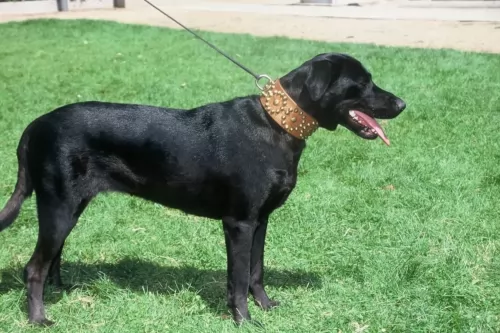 The Perro de Pastor Mallorquin is a dog known for its devotion to its owner, taking on his role as guardian and protector very seriously.
The Perro de Pastor Mallorquin is a dog known for its devotion to its owner, taking on his role as guardian and protector very seriously.
It is a courageous dog, strong willed and confident and isn't recommended as a first choice of dog for the novice dog owner, although there have been first-time dog owners who bring their dogs up correctly and have tremendous success with them.
Provide your dog with a firm consistent, kind, patient and loving home, and you can also be one of those first-time dog owners who highly recommend this dog as an awesome pet for any household.
 The life expectancy of your Norfolk Terrier is 8 to 14 years, but there are some who have received excellent care and who have reached 17 years of age.
The life expectancy of your Norfolk Terrier is 8 to 14 years, but there are some who have received excellent care and who have reached 17 years of age.
Just as with any other dog, they are prone to common dog illnesses, and these can include dental issues and mitral valve disease. They also are prone to hip dysplasia, and according to the Orthopedic Foundation for Animals (OFA) they are known for problematic hips.
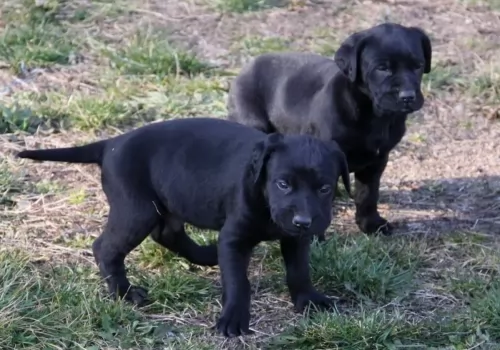 A dog can live a long, happy life when he has been looked after well. Makig sure he doesn't become obese, giving him enough exercise and loving him can ensure longevity. Your Perro de Pastor Mallorquin can live to be 13, 14 or 15 years of age, but there are always some common dog illnesses to be aware of -
A dog can live a long, happy life when he has been looked after well. Makig sure he doesn't become obese, giving him enough exercise and loving him can ensure longevity. Your Perro de Pastor Mallorquin can live to be 13, 14 or 15 years of age, but there are always some common dog illnesses to be aware of -
This is a disease of the hip where the ball and socket joint isn’t formed properly. The result is a joint that rubs as opposed to sliding smoothly. This is one of the most common skeletal diseases in dogs seen more often in large dogs. The disease can start while the dog is still young and it can lead to osteoarthritis an decreased activity.
One of the eye diseases is when the uvea of the eye becomes inflamed, creating a painful condition known as anterior uveitis or inflammation of the front of the eye.
This disease can threaten your dog’s vision. It is painful with redness of the eye, there could be a discharge too as well as excessive watery eyes. Cancer, infections and injury can all be to blame and your vet will want to examine your dog.
 The Norfolk Terrier’s hard, wiry, straight coat requires being hand stripped about twice a year by hand or with a stripping knife. The paws will also need to be trimmed.
The Norfolk Terrier’s hard, wiry, straight coat requires being hand stripped about twice a year by hand or with a stripping knife. The paws will also need to be trimmed.
It is recommended to keep the hair short around the anus for hygienic purposes and the tail itself will need to be stripped.
The Norfolk doesn’t shed his coat naturally, and the hair keeps growing, making the dog uncomfortable and ungroomed looking. The dog will certainly need to have his hair kept away from around the eyes.
If you don’t want to strip your dog, there are people who take their dogs to professional groomers, but then this professional grooming makes it that the texture of the dog’s coat changes from wiry to soft.
Small dogs are prone to dental problems, so check your dog’s teeth regularly. A bad tooth can play havoc with your dogs general health.
As with any other dog, the Norfolk Terrier will do well on high-quality kibble, specially formulated for small dog breeds. For a tasty treat, boil some chicken and vegetables such as sweet potato, carrots and spinach in a pot, chop them up and add to his kibble with some brown rice and pasta. A tiny bit of raw meat added in occasionally is all this little dog needs to stay healthy and content.
Don’t ‘treat’ him by giving him chocolates, chips and peanuts. You will upset his stomach. Dogs do best on simply, healthy, tasty diets such as mentioned above. Make sure he has a constant supply of fresh, cool water.
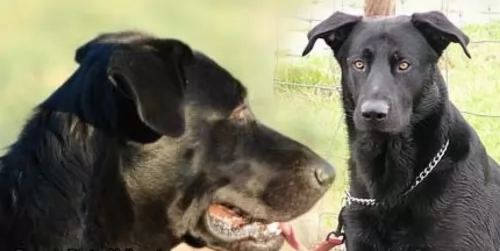 The Majorca Shepherd Dog isn't a heavy shedder but still, he will require some basic grooming such as brushing the coat twice a week to remove loose hairs and to retain his natural shine.
The Majorca Shepherd Dog isn't a heavy shedder but still, he will require some basic grooming such as brushing the coat twice a week to remove loose hairs and to retain his natural shine.
Other care and grooming routines for your pet are to check inside his mouth for dental disease as problem teeth can cause a host of diseases in the body.
Check inside his ears too and make sure they aren't red and itchy as this could be indicative of an ear infection.
Nail clipping is also important as his nails can hook onto things and rip open the flesh around the paw area.
These dogs are lively and energetic, having been used to do lots of work herding and guarding sheep. He isn't a dog to be left in the backyard day after day without human inter-action and exercise. He will require some hectic exercise every day and will love to join you with your jogging or cycling, running beside you. Take him with you on our walks and hikes.
Only the best dog food is recommended for this dog of yours. If you intend feeding your pet commercially manufactured food, make sure its the best quality ones – those with protein listed at the top of the ingredient list and with a good amount of vitamins and minerals.
Choose the food according to your dog's size, his age and his energy levels. If you're going to give your pet home-made food, keep it simple to avoid upset stomachs and vet's bills.
Boiled chicken, brown rice or pasta and cooked vegetables such as spinach, sweet potato and carrots are wonderful for a dog when added into the kibble occasionally as a tasty treat. You can also try to include some raw meat into the kibble from time to time.
Dog's just want simple, wholesome foods like this, no unpleasant surprises of spicy, 'people foods'. Never leave your pet without a supply of fresh, cool water.
Take your puppy to the vet to have his vaccines, as the canine parvo-virus (CPV) infection for instance, isn't only a very contagious viral illness that affects dogs, it can be a killer. Keep a check on your adult dog too and see that he gets to the vet at any sign of illness.